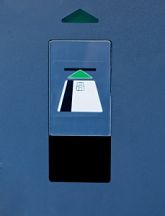How Deposits Usually Work
 It is important to understand how deposits work so that you can protect yourself in case that money ever comes up missing. While this is a rare occurrence, deposits go missing all the time and most of the time it is actually due to a clerical error either on the part of the bank or the account holder. This is actually pretty common amongst most financial institutions. The most important thing to note is that it is possible to get money back from old deposits. Once you begin to understand how and why these types of situations could happen, investigating an old deposit you made years ago will become a simple process.
It is important to understand how deposits work so that you can protect yourself in case that money ever comes up missing. While this is a rare occurrence, deposits go missing all the time and most of the time it is actually due to a clerical error either on the part of the bank or the account holder. This is actually pretty common amongst most financial institutions. The most important thing to note is that it is possible to get money back from old deposits. Once you begin to understand how and why these types of situations could happen, investigating an old deposit you made years ago will become a simple process.
Making a Deposit
When you make a deposit, either in person or electronically, you are asked to give the bank certain information. This includes your name, bank account number and the amount of the deposit in question. Typically this requires the use of a deposit slip if made in person or even through an ATM. You will even have to fill out the information online if you are making the deposit via electronic means. If you are getting direct deposit checks from your employer, you will have to fill out a form that you send to your HR department and that department will then facilitate the process. So mostly all types of deposits have a paper trail that you can physically track.
 Now this next part makes perfect sense even though most people don’t even think about it. The more contacts there are between you and the bank, the more likely it is for your money or deposits to go missing. Errors can happen at any point in the process from anyone involved. You may list the wrong account number or amount. Now while most banks usually catch these discrepancies and alert you that corrections have already been made, some of these financial institutions don’t actually have the technology to catch those problems. In most cases they don’t even know that they should be informing you about it unless someone is specifically looking for these types of misplaced funds. The person entering the check may enter the wrong name into the computer. Your HR department may short you money and you and the employer won’t even know it because the system is fully automated. There are even cases of people who make deposits and then abandon the accounts altogether for emergency or other reasons.
Now this next part makes perfect sense even though most people don’t even think about it. The more contacts there are between you and the bank, the more likely it is for your money or deposits to go missing. Errors can happen at any point in the process from anyone involved. You may list the wrong account number or amount. Now while most banks usually catch these discrepancies and alert you that corrections have already been made, some of these financial institutions don’t actually have the technology to catch those problems. In most cases they don’t even know that they should be informing you about it unless someone is specifically looking for these types of misplaced funds. The person entering the check may enter the wrong name into the computer. Your HR department may short you money and you and the employer won’t even know it because the system is fully automated. There are even cases of people who make deposits and then abandon the accounts altogether for emergency or other reasons.
Now that you know how deposits work you can now see how easy it is for money to actually go missing. You might want to learn how to get money back from old deposits. For this you don’t have to pick up the phone, nor do you have to visit any banks. You merely have to conduct a single online search using your first and last name.
By searching for missing money, you can claim and get money back from old deposits in the amounts of tens, hundreds or even thousands of dollars. Now that you know how deposits work, you may want to start thinking back throughout your life to determine if you may have left a few accounts behind in your time. Search for missing money in the form of old deposits today and finally get your money back.
